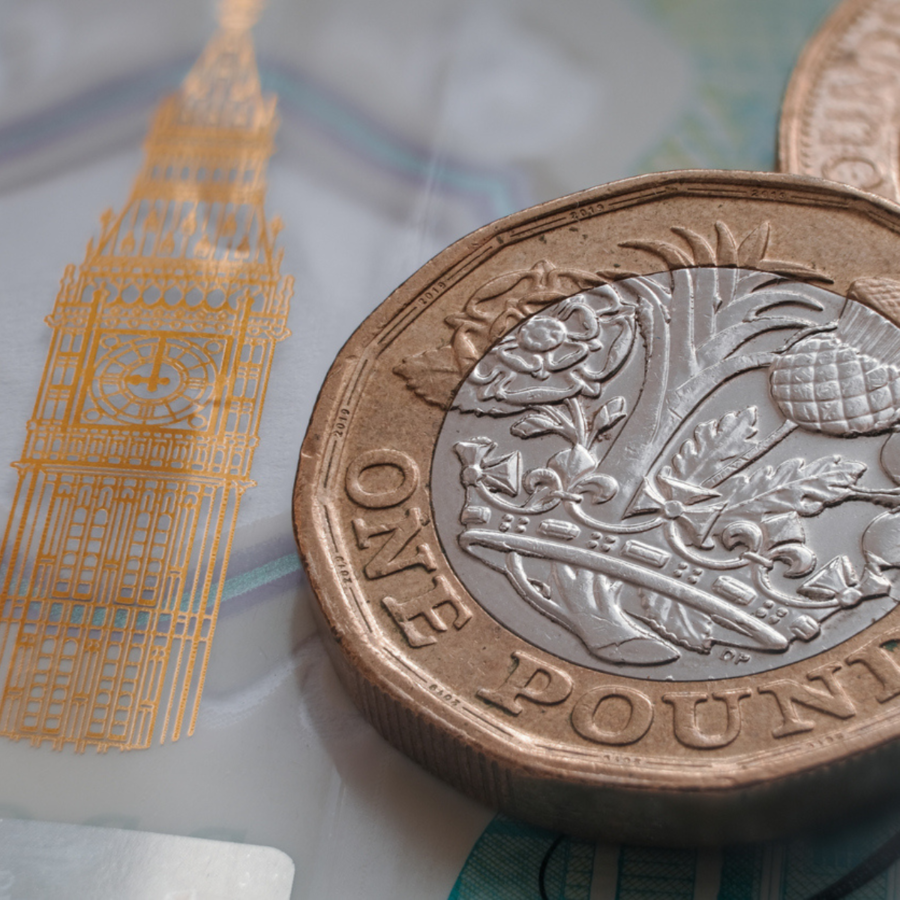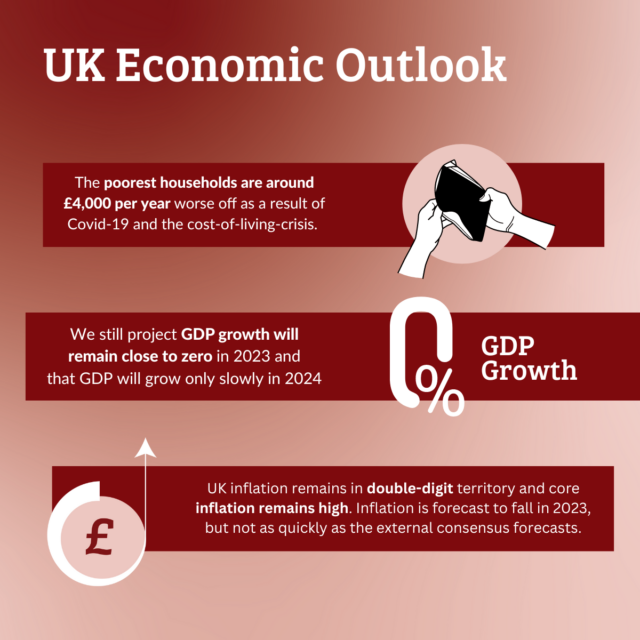The Bank of England’s Job Is Difficult Enough As It Is, Without Government ‘Help’
Having given the Bank of England independence in 1997, the Government should not now involve itself in trying to take credit for an imminent fall in inflation. And, by saying it will get inflation down, has actually made the Bank’s job harder.

The economy is suffering from a sequence of bleak shocks to its capacity to produce goods and services. These started with the financial crisis, which, although international, particularly affected an economy focused on financial services. It continued with the management of the exit from the European Union, which festered and ran like a sore through economic policy. The impact of the pandemic was amplified in an economy so heavily concentrated on the hospitality sector. And, as a trading nation reliant on energy and intermediate goods imports, supply chain disruptions and the Russian invasion of Ukraine further exposed the economy to a deterioration in its supply capacity.
This fall in productive capacity has left us, on average, poorer as a nation. But the “supply side” is not a direct responsibility of monetary policymakers, who must decide, after shocks that have provided such a considerable inflationary impulse, at what rate to “disinflate”.
These shocks have meant that the terms of our overseas trade have turned against us and that we have to give up more of our production capacity to replace our falling imports. The sharp increase in traded goods prices has meant, as with most big central banks, that the Bank of England has raised its policy rate rapidly to ensure that the supply shocks do not lead to chronic inflationary pressure.
The Bank has twin objectives: first, ensuring that, once temporary inflation has abated, wage and price-setters condition their future rounds of decision-making on inflation expectations that are consistent with price stability; and second, to ensure that demand is brought down in line with the lower level of capacity in our economy.
Yet there is an aspect of the Bank’s strategy that is often overlooked. While it probably is true — as many have loudly suggested — that an earlier response in 2021 might have shaped a percentage point or two off the peak in inflation, the pattern would have been much the same. A considerably stronger interest rate response in 2021 and 2022 might have stamped on inflation more forcefully, but at the cost of threatening a surge in unemployment and financial disruption in already delicate markets. The substantive risk of a subsequent deflation was very real. That would not have been the right response so soon after the damage inflicted by the pandemic.
The regime change from easy money to normalisation and a shrinkage in the central bank balance sheet, although long-heralded, represents a seismic shift that ought to be handled with great care. And that is where policy at the other side of town comes in. Double-digit inflation is not an outcome anyone wanted and it is imposing hardship on many families towards the bottom of the income distribution. But it is up to the Treasury, not the Bank of England, to offset the distributional consequences by offering more targeted relief. Inflation actually has helped to create some fiscal space by inflating government revenues relative to expenditure and accordingly debt levels seem to be lower than expected, with some room to support poorer families without generating excess demand.
Another point also has been overlooked. The government, by stating a target for halving inflation this year, inadvertently has provided a focal point for inflation at 5 per cent by the year’s end. As a result, people are now planning for 5 per cent rather than 4 per cent or less and this is making inflation more persistent. The government, having set the Bank a target for inflation along with operational independence, should not involve itself in trying to take credit for an imminent fall in inflation. “Inflation control” was handed to the Bank in May 1997. This year the government has made the Bank’s job harder by saying it will get inflation down.
To make a footballing analogy, the manager, having picked the striker, should not try to take any last-minute penalties himself. The question then is: if he does decide to take that penalty, is it a case of bad luck when he misses?
